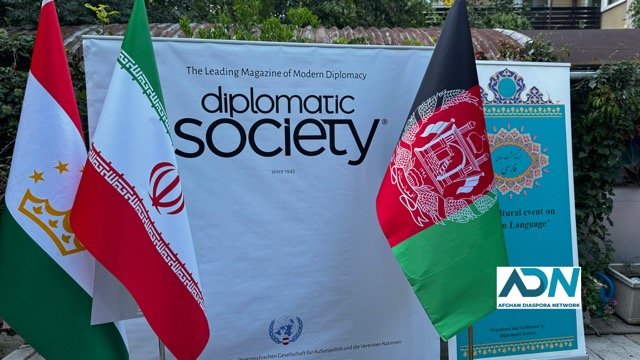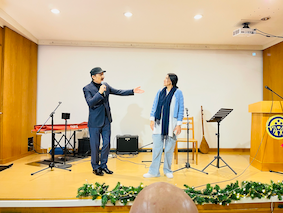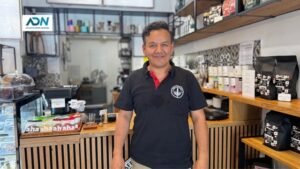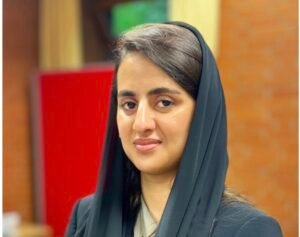Vienna Hosts Celebration of Farsi Language and Culture

Photo: @Ali Ahmad for ADN
ADN
In the leafy Fourteenth District of Vienna, the garden of Society Magazine became a stage for culture, diplomacy, and shared memory. The gathering, now in its fourth year, was initiated by the Embassy of Afghanistan and hosted by Society Magazine. On this warm evening, ambassadors, dignitaries, and friends of Farsi culture came together to honor the heritage of the Farsi-speaking world—Afghanistan, Iran, and Tajikistan—through words, music, and food.
Poetry and Diplomacy
Gertrud Tauchhammer, owner of Society Magazine, opened the evening with heartfelt words. She welcomed the international guests to the garden, noting how nature itself seemed to bless the event with sunlight and clear skies.
“Farsi is a language that brings us together,” she said, “a bridge that allows us to connect, to understand one another, and, most importantly, to love one another.”
Manizha Bakhtari, the Ambassador of Afghanistan, whose embassy spearheaded the initiative, spoke with emotion about the centrality of Farsi/Dari to her country’s identity. She described it as more than a language, calling it “a repository of philosophy, spirituality, and art.”
Citing Ferdowsi’s Shahnameh and Hafez’s Divan, she reminded the audience that Afghan homes still turn to poetry as a source of wisdom in times of joy and hardship alike. Yet she also spoke of today’s painful reality, where poetry, music, and cultural life in Afghanistan have been muted under Taliban rule.
“For my people, to recite Hafez is to reclaim dignity,” she said, “to affirm that no tyranny can silence the inner voice of beauty and truth.”
“It pains me deeply that in my country we can no longer gather freely for music, art, and poetry, the very traditions that give us dignity and connect us to the world,” Bakhtari stated.
The Ambassador of Iran, Asadollah Eshragh Jahromi highlighted the deep historical roots of Farsi culture. He began with the Cyrus Cylinder, inscribed in 529 BC and often regarded as the world’s first charter of human rights.
“This timeless artifact embodies the enduring principles of justice, tolerance, humanity, and human dignity,” he said, adding that these values remain vital across the centuries. From Cyrus the Great to the lyrical genius of Hafez, the Iranian envoy reminded the audience of how Farsi civilization continues to illuminate universal truths.
Idibek Kalandar, the Ambassador of Tajikistan then took the stage, celebrating the 700th anniversary of Hafez Shirazi.
“Hafez is a poet whose words still travel powerfully across the world,” he said.
He spoke of streets in Dushanbe that bear the poet’s name and of an international program in Paris, organized with UNESCO, that honored Hafez through exhibitions and concerts. He also recalled the global legacy of the Cyrus Cylinder and shared that Dushanbe had created a park dedicated to Cyrus the Great, complete with a statue surrounded by gardens.
“Tonight,” he concluded, “we pay tribute to two towering figures of the Farsi-speaking world: Hafez, the poet of timeless wisdom, and Cyrus the Great, the visionary leader.”
Music, Food, and Friendship
The speeches gave way to music, as performers from Afghanistan, Iran, and Tajikistan filled the garden with melodies. The haunting strings of Afghanistan’s Tabla blended with Persian setar and Tajik rhythms, creating a soundscape that seemed to dissolve borders. Guests tapped their feet, smiled, and let the music carry them across centuries of shared culture.
Dinner followed, turning the evening into a sensory journey through three nations. From Afghanistan came the fragrant Qabuli Palaw, jeweled with carrots and raisins. Iran offered its classic Kabab Kobida, grilled to perfection. Tajikistan presented its own traditional delicacies, rich with the flavors of Central Asia. The aromas drifted through the garden, inviting guests to gather around tables where diplomats and friends exchanged stories over shared plates.
Cultural exhibitions lined the garden paths, showcasing calligraphy, paintings, photographs, and traditional crafts. Visitors paused to admire the artistry, reflecting on how language and art serve as vessels of identity and continuity.
A Shared Legacy
As night fell, the gathering took on the feel of a living poem—verses spoken not only in words, but in music, food, and friendship. Networking flowed easily, with conversations moving from history to the present, from personal memories to shared hopes.
The Afghan Embassy’s initiative, brought to life with the support of Society Magazine, was more than a cultural event. It was an affirmation that Farsi remains a bridge across borders and generations. Despite the challenges of the present, the evening in Vienna reminded all that poetry, music, and heritage endure as symbols of resilience and unity.
Since the Taliban’s return, Afghanistan’s de facto authorities have silenced music, banned love poetry, and restricted cultural life and freedoms. For the Afghan diaspora, events like this gathering in Vienna are vital spaces to keep culture and heritage alive, affirming that the spirit of Afghanistan endures beyond borders. They are not only celebrations but acts of resilience against erasure.











